Learning more about goat feeding is very important for successful goat farming business. You need to be conscious about your goat’s diet and their required nutrition to thrive, whether you are planning for raising meat goats, dairy goats or just practicing sustainable living on your homestead. One must follow and most important thing about goat feeding is ‘don’t make any sudden drastic changes in your goat’s diet all at once’.
And you should not anyhow feed your goats large amounts of new food. If you do any of these, then it can lead to a major digestive upset for your animals.
If you need to change your goat’s diet, then you should do it slowly (giving the bacteria in their rumen time to adjust). Proper goat feeding management actually involves providing food for the proper and desired growth in different aged and sized goats in different seasons. However, here we are describing more information about goat feeding for proper health and growth of your animals.
Goat Feeding Guide
Probably you have heard that ‘goats will eat almost anything that they find in front of them’. Although this isn’t be true in some cases. And the goats can be picky in certain conditions. You have to make a very good farming plan for running a successful goat farm. You need to be conscious about proper nutrition of your goats and provide them required supplements. Your goats will eat and consume what they want and require if you let them to graze by themselves. Read below for more goat feeding information.
Pasture
The first and most important thing about goat feeding is pasture. Goats are browsers and it will be better if you can arrange a pasture for them. Goats are actually well-known for their browsing ability on anything from lovely green grass to scrubby woods (where they can eat young trees and hardy shrubs). If you can make the pasture properly, then it will probably contain most of the efficient nutrients which are required for the goats.
A proper planned pasture also contains a high amount of energy and protein. Generally a pasture with millet, sudan grass, bahia grass, sorghum, grass, clover and a mixture of grain grass will be most suitable for goats. If you can install irrigation service and use it throughout the year, then your pasture will be a great feeding source for your goats.
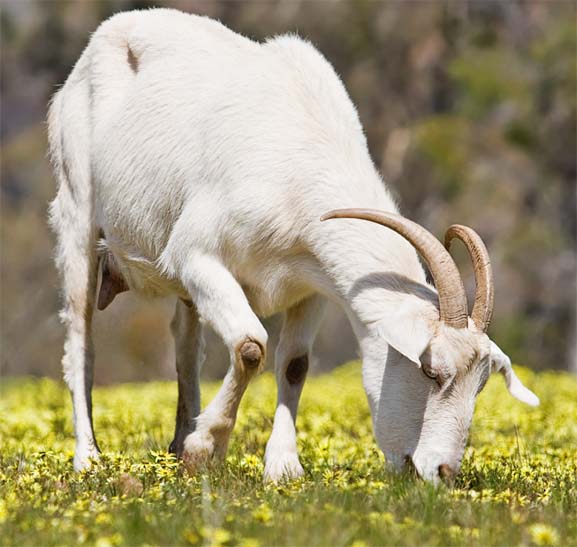
Hay
Hay is the main element of goat feeding management and it’s the main source of nutrients for the goats apart from the pasture. Actually hay can be a grass or legume (such as alfalfa or clover). Hay is generally used for feeding the goats during winter or when pasture is not available. Some people (who don’t have a pasture at all) also use hay throughout the year.
A goat will generally need between 2 and 4 pounds of hay daily (depending on the age, size and breed). Dry grass hay of a horse quality is acceptable, if a good pasture or range is not available. Alfalfa is very good and popular for feeding your goats. And it contains more protein, minerals and vitamins than grass hays. Chaffhaye is also a good goat feeding option, and we are describing more about it below.
Chaffhaye
Chaffhaye is also a very good option for feeding your goats. Actually Chaffhaye is alfalfa or grass that has been cut early. It is made by cutting grass or alfalfa, chopping it, mixing it with molasses and a probiotic culture called bacillus subtillis and vacuum-packing it. Then it will ferment while in the bag and will add good bacteria to the hay which makes it easier to digest for the goats.
The fermentation process also adds more energy, nutrients and minerals to the food. Chaffhaye can be used and fed to the goats a an alternative to hay. And a 50 lbs bag of chaffhaye equals roughly between 85 and 100 lbs of hay.
Grains
Grains or pelleted grain mix is a good option for feeding your goats. It adds protein, vitamins and minerals to the goat’s diet. Most of the meat goat farmers supplement their goat’s diet with grains. Corn, rye, barley, wheat, oats etc. are considered good grains for goats. While feeding grains, try to avoid overfeeding it. Because, excessive grains can make your goats fatty (which can cause illness and even death).
Minerals and Vitamins
Different types of minerals and vitamins are must for goats. Calcium, phosphorus and salt are required minerals for goats. You can use pre-mix loose minerals, and salt blocks as mineral sources for your goats. Along with minerals, goats also require vitamins. Vitamin A, D and E are most important vitamins for goats.
Kitchen & Garden Scraps
You can also feed kitchen and garden scraps to your goats. You can provide kitchen scrap such as banana peels, garlic skins, tomatoes, orange peels etc. A variety of human foods are also good for goats (such as veggies, fruits, dried fruits, corn chips, cheetos, graham crackers, cheerious, bread etc.). Goats especially love weeds, and you can get rid of weeds from your garden if you raise goats.
Water
Along with providing quality foods, you will also need to provide your goats with plenty of fresh water. Make water always accessible to your goats and give them as much as they need. Always remember, clean water is a must for keeping your goats healthy. Good luck!

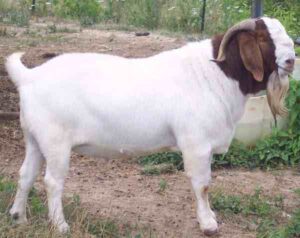
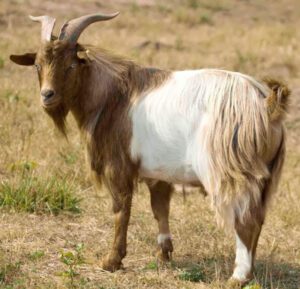
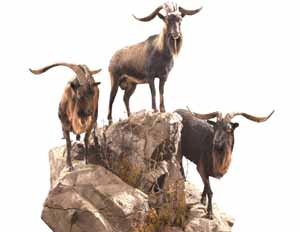
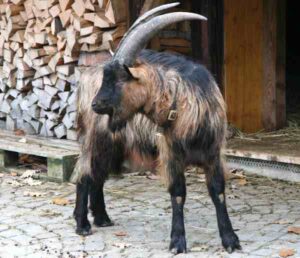
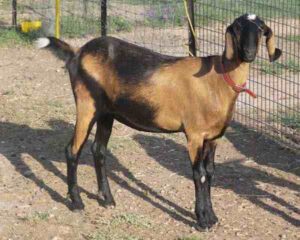
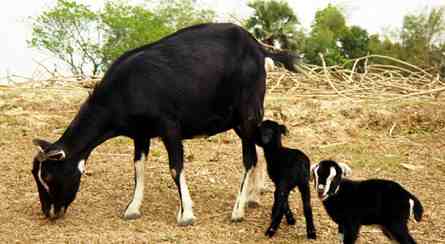
I appreciate your guide in this Goat Rearing methods. It’s so helpful unto me.
Now, kindly tell me which vaccines should I buy to treat them. This is because Veterinary doctor is far from my location.
I have started the business with about 10 goats. My email address is written here. Many thanks sir.
Mr. Albert – +2349058550781
Please review the goat vaccination schedule on our website. Good luck!
Thank you very much for this invaluable information
Your sight has been very helpful to me.